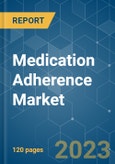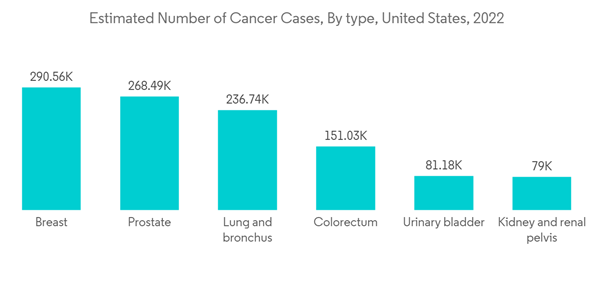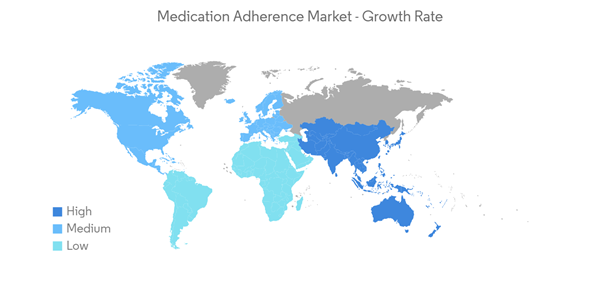The COVID-19 pandemic emphasized the need for reformation in the healthcare system for the accessibility of medical care to patients in rural areas. Decentralization of the health system to the primary care level and utilization of teleophthalmology should be considered by healthcare planners in the future. Various research studies have provided insight into the application of medicine adherence during the pandemic. For instance, in November 2021, a research study published in ScienceDirect stated that medical and medication-related problems had arisen because of restrictions to reduce the spread of COVID-19, along with the fear of exposure to COVID-19. Understanding the consequences of the COVID-19 pandemic in people with chronic diseases was crucial to improving health care and outpatient pharmacy accessibility and resources for this population during this and future pandemics. Similarly, another research study published in January 2021 in PubMed stated that the contribution of community pharmacists in managing chronic conditions and promoting medication adherence was the key to easing the disease burden on health systems. As chronic diseases continue to spread and the demand for medication adherence rises, the market is expected to witness growth.
Factors such as the rising adoption of mHealth adherence services are expected to increase the market growth. Various research studies have provided insight into the advantages of mHealth adherence services. For instance, in March 2022, a research study published in PubMed stated that the treatment of many chronic illnesses involves long-term pharmaceutical therapy, but it was an ongoing challenge to find effective ways to improve medication adherence to promote good health outcomes. mHealth intervention can improve medication adherence and health outcomes, including systolic and diastolic blood pressure.
Moreover, in August 2021, Mount Sinai Health System started using a first-of-its-kind mobile application to expedite and enhance care for patients with heart attacks. The app, developed by Mount Sinai’s interventional cardiologists, emergency department physicians, and the nursing team, improves communication among doctors, nurses, and the clinical command center so that patients can get more rapid care to improve outcomes. Additionally, In January 2021, CuePath Innovation Ltd signed a service agreement with the Care Company, an Ontario-based at-home care provider for seniors and chronic health patients. The agreement makes CuePath's Medication Adherence (MAAS) a standard service offering to The Care Company's growing client population. Such advancements and their adoptions are likely to increase market growth in the upcoming future.
Amidst expected growth, privacy and security concerns related to these services are expected to hinder the market growth.
Medication Adherence Market Trends
The Software Centric Segment is Expected to Hold a Significant Market Share Over the Forecast Period
The software segment is expected to witness growth in the market owing to factors such as an increase in demand for software in medication adherence and a rise in strategic partnerships and product launches. For instance, as per an article published in March 2022 in PubMed, the technology used in electronic pill bottles, which are composed of a standard-sized pill bottle and an electronic cap with a microchip, stores a date and time stamp once the cap has been removed during an opening event. Device or hardware attributes include evaluation criteria such as device size, battery life, medicine storage capacity, installation or software requirements, and the necessity for a wireless connection. Such studies showcasing the uses and advantages of software in medication adherence are expected to drive market growth over the forecast period.Furthermore, new software launches for advancement in medication adherence are expected to increase segment growth over the forecast period. For instance, in April 2021, Cardinal Health launched a new platform to improve drug adherence. The platform, which the company is calling Outcomes, brings together several already-running businesses to provide tele pharmacy, digital patient engagement, and pharmaceutical therapy management capabilities.
North America is Anticipated to Hold a Significant Share Over the Forecast Period
North America is expected to hold a significant share of the market owing to factors such as an increase in the adoption of medication adherence software launches, a rise in mHealth technologies, and a surge in healthcare expenditure across the region.An article published in December 2021 by Ōmcare, titled "4 Telling Medication Adherence Statistics (updated for 2022)," stated that around 66% of people in the United States took at least one prescription medication. The average number of prescriptions taken was 4 per person, but that number rose significantly for those being treated for chronic conditions. Regardless, medication is one of the largest expenditures in the healthcare industry to date (over 10% of all healthcare spending). The same source stated statistics showing that between 40 and 60% of mentally ill patients had poor medication adherence and rarely took their medications on time, if at all.
Furthermore, according to a CMS.gov December 2022 update, national health expenditure grew 2.7% to USD 4.3 trillion in 2021, or USD 12,914 per person, and accounted for 18.3% of the Gross Domestic Product (GDP) in the United States. Such expenditure is expected to drive market growth over the forecast period. Additionally, as per CDC October 2022 estimates, every year, 805,000 people in the United States had a heart attack, 605,000 of these were first-time heart attacks, while 200,000 were caused by previous heart attacks. This surge in chronic diseases also contributes to the growth of the studied market.
Medication Adherence Industry Overview
The market is partially fragmented and consists of several major players. Some of the companies currently dominating the market are AdhereTech, McKesson Corporation, Medminder Systems, Inc., Omnicell, Inc., and DrFirst, among others.Additional Benefits:
- The market estimate (ME) sheet in Excel format
- 3 months of analyst support
This product will be delivered within 2 business days.
Table of Contents
Companies Mentioned (Partial List)
A selection of companies mentioned in this report includes, but is not limited to:
- AdhereTech
- Cardinal Health
- DrFirst
- Everwell
- InhandPlus
- Johnson & Johnso
- Koninklijke Philips N.V.
- McKesson Corporation
- MedAdvisor International Pty Ltd
- Medminder Systems, Inc.
- Omnicell, Inc.










